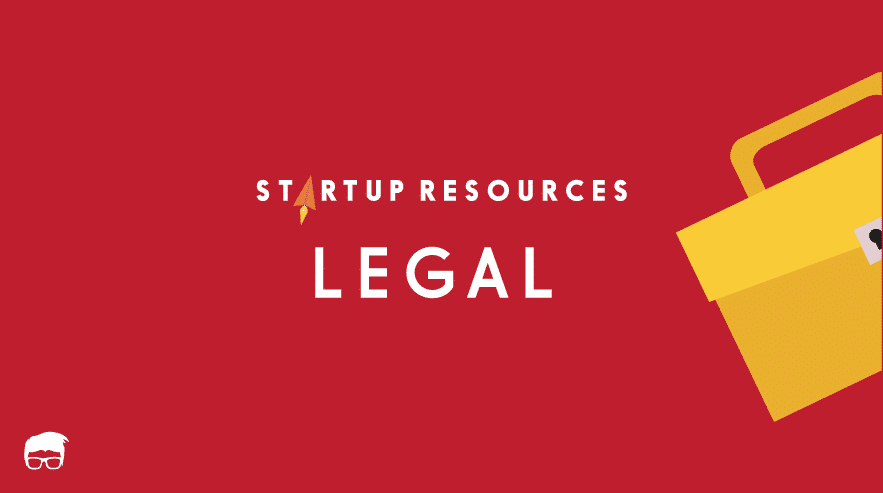As an entrepreneur, I’m sure you know the intricacies of your business, but how well do you understand the importance of legal documents?
What would you do in the following scenarios –
-
- A customer claims that you misrepresented a product and is threatening to sue.
-
- Your cofounder plans to leave the business and start a competition.
-
- Your investors are questioning the legality of a certain action.
These are all scenarios where having the right set of legal documents can help protect you and your business. While there is no one-size-fits-all set of legal documents, here’s an overview of 12 essential legal documents for any startup:
Incorporation Documents
Incorporation documents are the official documents used to form a corporate entity. These include articles of incorporation, bylaws, and other documents that outline your company’s operations.
One of the biggest mistakes entrepreneurs make is not separating their startup from their personal assets. This mistake often leads to personal liability and financial distress.
To prevent this, it is important to register your company as a legal entity, like a corporation or limited liability company (LLC) that has its own legal and financial standing.
Incorporation documents (for a corporation), LLC operating agreements (for LLCs), and other formation documents are legal proof that your business is separate from you and your cofounders.
This in itself has several benefits:
-
- Limiting your personal liability, so you’re not held responsible for potential losses or damages caused by the company.
-
- Giving you access to certain tax benefits and deductions.
-
- Making it easier to secure financing from investors and lenders as investors always prefer to invest in a legally formed entity.
If you’re not the only owner of the startup, it’s important to document how the company will be owned and operated. A shareholders’ agreement (when external investors are involved) or founders’ agreement (when founders own the business) helps protect your interests.
These legal documents for startups clearly outline the following:
-
- How and when will you be compensated.
-
- Who has voting rights and decision-making powers.
-
- How the company’s shares are distributed among owners.
-
- What happens if an owner leaves or is bought out.
-
- Dispute resolution methods for resolving disagreements between shareholders/founders.
Having these agreements in place will help reduce the potential for conflict among owners and protect everyone’s interests in case of a disagreement.
Imagine these scenarios –
Your cofounder plans to leave the business and start a competition.
With a founders’ agreement in place, you’ll have an explicit set of rules that describes how the departing founder will exit the company and prevent them from starting a competing business.
Your investors are questioning the legality of a certain action.
Having shareholders’ agreements in place can provide clarity on how decisions are made and who has the authority to make them. This can help ensure that all parties involved are aware of their respective rights and obligations when it comes to making key decisions regarding the company.
Intellectual Property (IP) Contracts
Your startup’s success depends partly on its ability to protect its intellectual property (IP). IP can include trademarks, patents, copyrights, and trade secrets.
These can be your brand name, logo, tagline, website design, software code, and other assets. Having the right IP contracts in place is important to protect these assets from infringement or theft.
Some of the IP contracts you may need to consider include:
-
- Patents: A patent is a legal claim that gives you exclusive rights to your invention. If someone else uses your patented technology without your permission, they can be held liable for infringement. These include utility patents, design patents, and plant patents. You can register a patent by filing a patent application with the United States Patent and Trademark Office (USPTO). For other countries, you may need to file separate applications with their respective governments.
-
- Trademarks: A trademark is a phrase, logo, or symbol that identifies your products or services. It helps prevent others from using the same name to market their products or services. These include brand names, slogans, and logos. To register a trademark, you must file an application with the USPTO. For India, you can file an application with the Controller General of Patents Designs and Trademarks.
-
- Copyrights: A copyright is a legal claim that gives you exclusive rights to your original work, such as books, articles, music albums, films, and computer software. To register a copyright, you must file an application with the US Copyright Office in the United States. For other countries, you may need to file separate applications with their respective governments.
-
- Trade secrets: Trade secrets can include business processes or methods, customer lists, recipes, formulas, algorithms, designs, and other confidential information. These are not registered with any governmental body but are kept secret to maintain a competitive advantage. To protect your trade secrets from theft or misuse, it is important to have an agreement in place that outlines how the information will be handled and who has access to it.
Employment Agreements
Employment agreements outline the terms and conditions of employment between an employer and an employee. These legal documents for startups specify both parties’ rights, duties, and obligations in a legally binding agreement.
If you have employees, you need an employment agreement that includes provisions for:
-
- Salaries and benefits.
-
- Job duties, responsibilities, and expectations.
-
- Working hours and vacation policies.
-
- Confidentiality and noncompete clauses.
-
- Termination protections for both parties.
Having these documents in place will help ensure that your employees understand their job requirements, duties, and company policies and procedures.
Moreover, it will also protect your business from potential legal issues if an employee chooses to leave the company or breach their contract.
Non-Disclosure Agreements (NDAs)
A non-disclosure agreement (NDA) is a legally binding contract between two parties that outlines what confidential information must remain private. It prohibits the sharing or use of this information for any purpose other than what it was intended for.
You may need to enter into NDAs with vendors, partners, customers, or investors if you want to protect confidential information such as trade secrets, pricing strategies, customer lists, recipes, formulas, algorithms and other proprietary information.
To create a binding NDA, you must include provisions for:
-
- Definition of the confidential information that is being protected.
- Who has access to the information and how it can be used.
- What happens if either party breaches the agreement.
- How long the agreement will remain in effect.
Both parties must sign the document, and a lawyer should review it to ensure all the necessary provisions are in place.
Vendor Contracts
Vendor contracts are agreements between two parties – a vendor and a customer. The contract outlines what services or products the vendor will provide to the customer and any associated costs.
Some of the provisions included in these legal documents for startups are:
the services you are receiving from your vendor and the associated terms. Even if you can’t have the printed versions, you can use a scanning app to store digital copies of such contracts for easier access.
Regulatory Compliance Documents
Depending on the nature of your business, you may need to comply with certain regulatory requirements. They may include laws, regulations, and procedures related to financial reporting, data privacy, health and safety standards, cybersecurity protocols, and environmental protection.
If you must comply with any of these regulations, you must have the appropriate documents. These documents can include compliance policies and procedures manuals that outline the standards you must adhere to.
You may need a lawyer’s help to ensure these documents align with all relevant laws and regulations. They can also help you create an internal audit system to ensure your business complies with the latest regulations.
Such regulatory compliance documents serve to protect your business and employees from scenarios like these:
- Definition of the confidential information that is being protected.
- Who has access to the information and how it can be used.
- What happens if either party breaches the agreement.
- How long the agreement will remain in effect.
Business Plan
Though not a legal document, a business plan is essential to any startup. It is a document that outlines the goals and objectives of your business, as well as the strategies and tactics you will use to achieve them.
Having a detailed business plan in place helps ensure that all aspects of your business are considered when making decisions. It also serves as a roadmap for investors who may be interested in funding your startup.
Your business plan usually includes:
-
- An overview of your business and its mission statement.
- Detailed financial projections.
- A description of the products or services you offer.
- Your competitive advantages in the market.
- A marketing plan to promote your products and services.
- Any legal considerations that need to be taken into account for your specific industry or jurisdiction.
While no law requires you to have a business plan, it is often an integral part of any successful startup. Having one can help ensure that all aspects of your business are well-thought-out and organised.
Tips for Creating an Effective Legal Infrastructure
Creating a legal infrastructure for your business is essential for the success of your startup. Here are some tips to help you get started:
-
- Have an attorney or law firm review all of your documents and contracts to ensure they are in compliance with applicable laws and regulations.
- Make sure that all parties involved have a clear understanding of their roles and responsibilities.
- Ensure you have a copy of all legal documents in case you need to refer back to them for any reason.
- Make sure that all documents are reviewed and updated regularly. Regulations may change over time, so it’s important to be aware of any changes affecting your business.
- Have a system to ensure that all documents are properly tracked and managed. This will help you stay organised and on top of any legal issues that may arise.
A startup consultant, digital marketer, traveller, and philomath. Aashish has worked with over 20 startups and successfully helped them ideate, raise money, and succeed. When not working, he can be found hiking, camping, and stargazing.





![How to Register a Company? [Detailed Guide] company phase registering company](https://www.feedough.com/wp-content/uploads/2017/08/company-phase-registering-company-10.webp)



